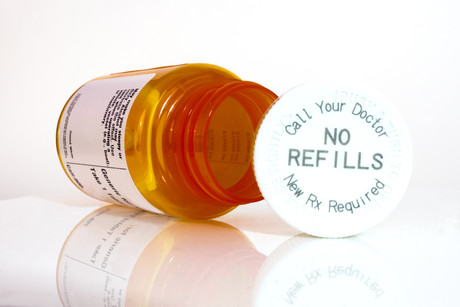Medicine shortages addressed in law

In any healthcare setting, when we are interrupted or tied up by ‘administrivial’ tasks, valuable face-to-face time with our patients is lost.
For hospital pharmacists, this lost time comes at the expense of cognitive pharmacy services and direct care to patients and their families, and one such administrative tension has reached crisis point in recent years.
Convoluted supply chains, a lack of reporting requirements for pharmaceutical companies and increasingly complex patient needs have converged to challenge an essential requirement of Australia’s health system: the provision of the right medicine, to the right person, at the right time, in the right way.
Medicine shortages
Medicines shortages affect all countries, but depth of understanding and corresponding policy to manage and mitigate shortages varies.
Last year, SHPA worked to convert anecdotal local evidence into hard statistics through the landmark Medicine Shortages in Australia Report, informed by data from 280 metropolitan, regional and rural health service facilities gathered by SHPA members over a 24-hour period in April.
The findings received significant media attention and thrust the issue of medicines shortages into the health national conversation, and it was clear why: on one single day hospital pharmacists reported 1577 individual shortages across a wide range of medicine classes, almost 40% being antimicrobial medicines, and reported that shortages negatively affect patient treatment in one-third of cases.
Cross-referencing responses with warnings and alerts available that day through government websites, including the Therapeutics Goods Administration’s Medicine Shortages Information portal, revealed 85% of reported shortages were not listed by their respective companies.
Incredibly, many pharmacists contacted SHPA saying they wanted to list additional shortages, but ran out of time.
Towards a resolution
Following the report’s release, the work began in earnest.
SHPA convened the Medicines Shortages Working Group to contribute to an evidence-based approach reflecting the community’s expectation that, in reasonable circumstances, the most appropriate medicines for their treatment should be reliably available in Australia.
This group partnered with the Department of Health and other health organisations — including the Australian Medical Association and the Medicines Partnership of Australia — to develop a new national protocol, under which medicine suppliers would be required to report all medicines shortages in confidence to the TGA. Under a new classification system, all medicines shortages deemed to carry ‘extreme’ or ‘high’ patient impact would be mandatorily published on the public Medicines Shortages Information Initiative (MSII) on the TGA website.
In June 2018, Health Minister Greg Hunt introduced a bill to amend the Therapeutic Goods Act 1989 which, for the first time, defined a medicine shortage in Australia as existing when the supply of a medicine, for a six-month period, “will not, or will not be likely to, meet the demand for the medicine for all of the patients in Australia who take, or who may need to take, the medicine”.
In September, the Therapeutic Goods Amendment (2018 Measures No. 1) Bill 2018 passed the Australian Senate, to come into effect on 1 January 2019.
Positive impact
The new protocol promises to make a huge impact on the effectiveness of hospital pharmacists in Australia, liberating their time to spend on crucial face-to-face cognitive pharmacy services on the wards, maximising their input into multidisciplinary medical teams.
From the coalface to Canberra, this swift turnaround is not only a triumph for collaborative advocacy, it is a win for the most acutely ill Australians who can take a degree of comfort in knowing government, pharmaceutical companies and their hospital care team are on the same side in ensuring the most appropriate medicines available for their treatment are always readily on hand.

Patients co-design invasive heart surgery monitoring clinical trial
Patients and their families have co-designed a clinical trial to determine if invasive devices...
Have Australian researchers discovered the secret to treating sepsis?
Promising results from a Phase 2 clinical trial have Australian researchers looking to progress...
Could this tailored heart pump transform care for half of heart failure patients?
Half of the 64 million people living with heart failure have no access to heart pump treatments....

![[New Zealand] Transform from Security Awareness to a Security Culture: A Vital Shift for SMB Healthcare — Webinar](https://d1v1e13ebw3o15.cloudfront.net/data/89856/wfmedia_thumb/..jpg)
![[Australia] Transform from Security Awareness to a Security Culture: A Vital Shift for SMB Healthcare — Webinar](https://d1v1e13ebw3o15.cloudfront.net/data/89855/wfmedia_thumb/..jpg)




